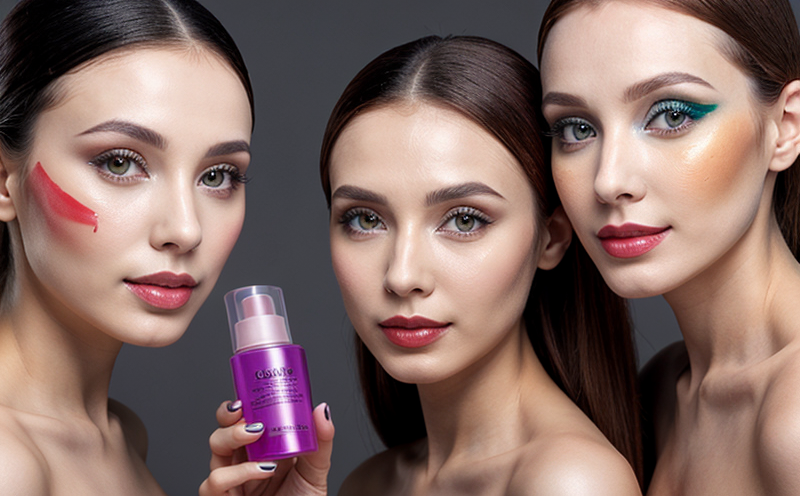Mutagenicity Testing for Cosmetic Safety Assessment
When it comes to cosmetic product development and safety assessment, mutagenicity testing is a critical process. Mutagenic substances are those that can cause genetic mutations in the cells of living organisms, potentially leading to cancer or other serious health issues. Regulatory bodies such as the European Commission (EC) and the US Food and Drug Administration (FDA) have stringent requirements for ensuring cosmetic products do not contain such harmful materials.
Our laboratory offers comprehensive mutagenicity testing services specifically tailored to the cosmetics sector. This service is essential in identifying potential risks associated with new ingredients or formulations, thereby contributing significantly to the overall safety of consumer products. The primary goal of this test is to assess whether a substance can damage DNA, which would indicate its capability to induce mutations.
The Ames Test is one of the most widely used methods for detecting mutagenicity in cosmetics. This bacterial reverse mutation assay utilizes Salmonella typhimurium or Escherichia coli strains that carry specific genetic defects. By exposing these bacteria to test samples, we can observe if there are any changes in their ability to grow on minimal media containing histidine, an essential amino acid for growth.
Another important technique is the in vitro mammalian cell assay, which uses V79 cells derived from a rat lung tumor. These cells are exposed to various test materials under controlled conditions. Changes observed in the cell population over time can provide insights into potential mutagenic effects.
Mutagenicity testing plays a crucial role not only for compliance with regulatory standards but also in protecting brand reputation and consumer trust. Companies that adhere strictly to these tests ensure they are meeting international guidelines, such as those set by ISO, OECD, and the European Union's Cosmetics Regulation (EC 1272/2008).
Understanding the complexities involved in mutagenicity testing helps stakeholders comprehend why this service is indispensable. It encompasses a series of intricate procedures aimed at minimizing risks while maximizing product safety. Compliance with these rigorous tests ensures that cosmetic products are free from harmful substances, promoting safer use for all consumers.
- Compliance with EU Cosmetics Regulation (EC 1272/2008)
- Adherence to OECD guidelines
- ISO standards for mutagenicity testing
- Incorporation of advanced bacterial and mammalian cell systems
Benefits
Mutagenicity testing is pivotal in ensuring the safety of cosmetic products. By identifying potential carcinogens early in the development process, companies can avoid costly recalls and lawsuits. This proactive approach enhances brand reputation and consumer trust.
The results from mutagenicity tests provide valuable data that help refine product formulations. This not only leads to safer products but also allows for more informed decisions regarding ingredient sourcing and formulation adjustments.
Moreover, compliance with regulatory requirements can significantly reduce the risk of legal issues and fines associated with non-compliance. It demonstrates a commitment to consumer health and safety, which is increasingly important in today’s highly regulated market environment.
The findings from these tests also contribute to sustainable development goals by promoting safer use of resources and reducing environmental impact. By ensuring that only safe ingredients are used, companies can help minimize the risk of pollution and other adverse effects on ecosystems.
Eurolab Advantages
At Eurolab, we pride ourselves on offering world-class mutagenicity testing services specifically designed to meet the unique needs of the cosmetics industry. Our team comprises highly qualified experts who possess extensive experience in this field.
We utilize state-of-the-art equipment and follow stringent quality control protocols to ensure accurate and reliable results. This commitment to excellence allows us to provide comprehensive reports that are not only accurate but also easy to understand, making them invaluable tools for decision-makers within your organization.
Our laboratories are accredited by leading accreditation bodies, ensuring that all our tests adhere to the highest standards of scientific rigor and accuracy. We continuously invest in training our staff and updating our facilities to stay at the forefront of innovation.
Quality and Reliability Assurance
The quality and reliability of mutagenicity test results are paramount for ensuring accurate assessments of cosmetic products' safety. At Eurolab, we employ several measures to maintain these standards:
- Utilization of advanced analytical instruments that provide precise measurements
- Strict adherence to internationally recognized protocols and guidelines
- Inclusion of multiple quality control checks throughout each testing cycle
- Regular calibration of equipment to ensure consistent performance over time
These rigorous procedures guarantee that every test conducted by our laboratory meets the highest industry standards. Our commitment to excellence ensures that you receive accurate, reliable results that can be confidently relied upon.





